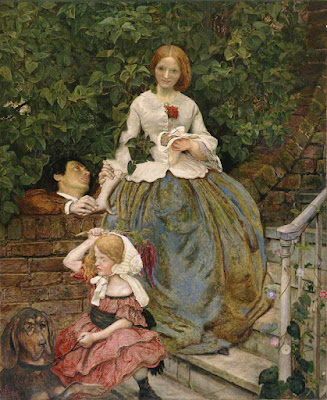The Theatre of Cruelty
Some will say that all the contestants on I'm a Celebrity are perfectly aware what they are letting themselves in for; that unlike the innocents whose lives were ripped apart by formats like Jerry Springer, they know how television works and have signed lucrative contacts as part of the Faustian bargain. And in some ways I'd agree. But I also think it leaves us with the question of what has gone wrong in a culture where people are willing to debase themselves in return for fame, not to mention why there is such a lucrative market for this kind of entertainment...
But this is really my point. I'm a celebrity is in no way trivial. It is not mindless. It is explicitly and calculatingly vindictive. Producers are not seeking to make people laugh, or learn, or switch off, but to participate in what the psychiatrist Sir Simon Wessely has called "the theatre of cruelty". One is reminded of Dostoevsky's line in The Brothers Karamazov: "People speak sometimes about the 'bestial' cruelty of man, but that is terribly unjust and offensive to beasts. No animal could ever be so cruel as a man, so artfully, so artistically cruel."
 |
| Stages of Cruelty Ford Maddox Brown (1821-1893) Photo Credit: Manchester Art Gallery [CC BY NC ND] |
And it seems that the more we have become habituated to these formats, the more these spectacles have been normalised, the more society has engaged in superficial niceness as a compensatory mechanism. Doesn't this explain why the brands that bankroll these shows via advertising are so eager to market themselves as "kind" employers; why superficially "nice" presenters like Ant and Dec are chosen to front them? Doesn't it explain, more generally, why those who have #BeKind on their Twitter blog are the most likely to engage in vicious pile-ons?
The mistake we have made, I think, is to focus on the dangers of Instagram and TikTok without noticing that reality TV is the gateway drug to the most manipulative and voyeuristic excesses of our culture. I don't want to blame reality TV for all ills, but it would be foolish to ignore its contribution to the epidemic of online bullying and mental ill health. I mean what do we expect when the suffering of others is packaged, monetised and served up as mass entertainment?...
I am not calling for regulation; it's probably too late anyway. But I do suggest we need a moral awakening... I hope the conscience of our generation is touched; that we see this cancer for what it is. And perhaps a good acid test is when Ant and Dec are seen not as national treasures, not as lovable scamps, but as salesman who have made millions from primetime cruelty. It's enough to make one retch.
(Matthew Syed, The Sunday Times, 2023)
What a perceptive and illuminating article. He expresses, for me, all that I'm a Celebrity represents. There again I realise that I don't speak for all those millions who watch the programme.
Comments
Post a Comment